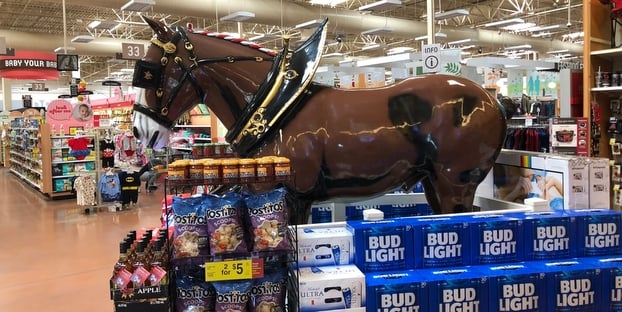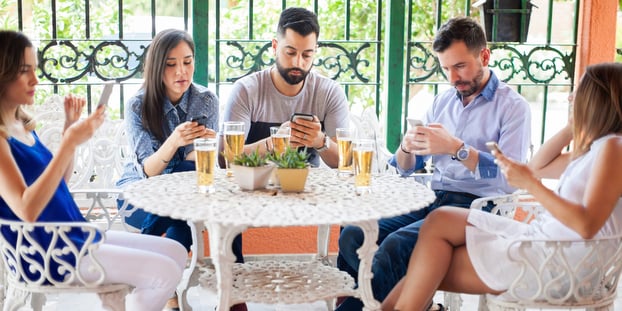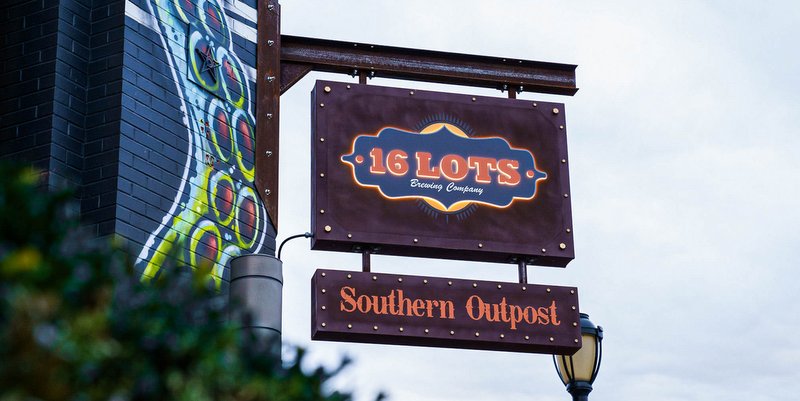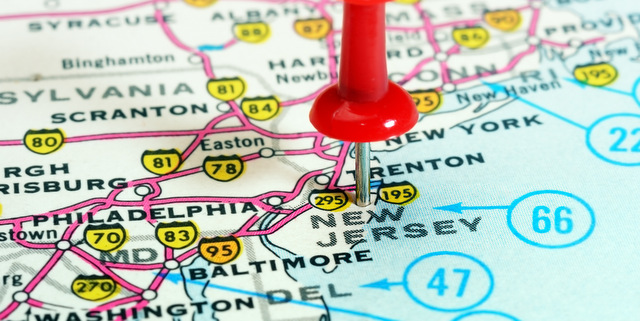
Laws prohibiting certain beer, wine and liquor advertising involving retailers are so contentious that two challenges to their constitutionality were decided by federal courts of appeals in 2017. Also in 2017, a law that led to eight breweries and wineries agreeing to one year of probation rather than face 10-day license suspensions for tweeting about a festival named for its sponsor, a licensed retailer, was softened, but the laws on brewery advertising with retailers remains complicated. The intent of this article is to educate brewers to recognize the issues that could get a brewer in trouble but not to discuss all the legal subtleties. For further information, please talk to an attorney knowledgeable about the brewery laws of your state.
In my first article about brewery advertising, I wrote about what had to be said and what could not be said legally in beer advertising. This article addresses more of a “how” question when it comes to advertising involving retailers. A third article will address how the rules apply on social media and the internet.
Federal law: Pay-to-play advertising rules
Because the federal laws are generally applicable to all brewers, they are discussed first. The basic premise of the federal laws discussed in this article is to prevent control of retailers by manufacturers, i.e., tied houses, as was common before Prohibition. To that end, the federal laws generally prohibit brewers from directly or indirectly giving anything “of value” to retailers that compromises the independence of the retailer. What does that mean you ask?
Fortunately, the federal regulations provide a lot more direction for six main categories of advertising through near prohibitions and “safe harbors” within which there is almost no chance of a federal violation. It is possible to operate outside of these safe harbors and not violate federal law if, and this is a big complicated if, it does not compromise retailer independence. So without further ado, here are the six categories:
- Safe harbor for consumer tastings or samplings
- Safe harbor for giving advertising materials to retailers
- Safe harbor for advertising retailers
- Near prohibition against paying retailers for advertising or for displaying your products
- Rules for events and live entertainment at retailers and
- Safe harbor for coupons.
1. Safe harbor for consumer tastings or samplings at a retailer. Consumer tastings or samplings at a retailer are permitted. The alcohol to be tasted or sampled may be purchased from that retailer but not above the ordinary retail price. The giving of advertising materials to the retailer announcing the event is discussed in category 2, while advertising of retailers is discussed in category 3 and in my next article regarding internet and social media advertising.
2. Safe harbor for giving advertising materials to retailers: There is a $300 limit on product displays, e.g. shelving or racks, given to a retailer per brand. Point of sale (POS) advertising material, e.g., posters and inside signs, and consumer advertising specialties, i.e. swag, may be given or sold to a retailer. Giving or selling of outside signs to a retailer is permissible if the cost of the signs does not exceed $400. The product displays, POS advertising, swag and outdoor signs must bear “conspicuous and substantial advertising matter” of the brewer or brand. POS materials may also include the retailer name and address. None of these materials may be given to the retailer with strings attached.
Tap handles, with or without brewer’s logos, may be sold at cost or higher to retailers if the retailers pay within 30 days. Additionally, special recordkeeping is required for product displays and tap handles to qualify for the safe harbors. Paying the retailer for displaying or using any of the above advertising materials is prohibited.
3. Safe harbor for advertising of retailers. Brewers can advertise names and addresses of two or more unaffiliated retailers, e.g. not under same ownership, if the retail price is not included and the listing of retailers is “relatively inconspicuous in relation to the advertisement as a whole.” In states where the retailers are state-owned, the safe harbor is broader. For details about how this safe harbor works on the internet and in social media, check out my next and final article.
4. Near prohibition against paying retailers for advertising or for displaying your products. Paying or crediting a retailer for advertising is prohibited if it compromises the retailer’s independence. This near prohibition includes renting display space, advertising in retailer publications, paying the retailer for display services and paying for advertising placed by a retailer. This near prohibition also includes paying or crediting a retailer for displaying any of the advertising materials discussed under category 1 or 2.
5. Rules for advertising events and live entertainment. Sponsorship and advertising of temporary retailers, e.g., events, is permissible. Temporary retailers are defined as dealers who are not retailers for more than four days in a row per event and for not more than five events per year. With respect to advertising at ball parks, racetracks and stadiums, there is a near prohibition against paying for advertising by retail concessionnaires in category 4. However, there is generally no rule against sponsoring and advertising at the ball parks, racetracks and stadium as long as there are no strings attached relating to what beverages are served.
6. Safe harbor for coupons. Coupons are permissible if the coupons can be redeemed at all retailers within the geographical area of the coupon offer and the retailer receives no more than the face value of the coupon and the usual and customary handling fee. There are special recordkeeping requirements in 27 CFR § 6.81.
General state laws: Pay-to-play advertising rules
The 50 states can have laws that are looser than the federal rules — Washington does not even have a legally required three-tier system — in which case the federal law is also looser. But, state laws can also be much stricter than federal law. One way this happens is for states to take very narrow interpretations of federal safe harbors and assume that any activity outside a federal safe harbor jeopardizes retailer independence and are therefore automatically illegal. For example, the tweeting incident described at the start of the article was likely not a violation of federal law as will be discussed in the next article.
Illinois pay-to-play example
The laws of Illinois which differ significantly from federal law will be highlighted below rather than providing a detailed discussion. Here are some of the biggest differences:
- Generally, Illinois statute prohibits brewers from giving or lending anything of value to retailers unless specifically exempted. If a brewer falls out of the exemption, then what the brewer is doing is generally illegal. This is much stricter than the federal approach, but the Illinois exemptions are frequently larger than the federal safe harbors.
- The signage rules in Illinois differ significantly from federal law. For example, Illinois limits permanent and temporary signs to one per retail licensee, but the dollar limit for permanent outdoor signs is $2,487 per brand versus $400 in federal law.
- Tap handles are considered to be permanent inside signs and thus can be sold, given or lent to retailers subject to a $5,573 limit for signs in use per manufacturer in Illinois law. Under federal law, tap handles are considered to be dispensing accessories and therefore have to be sold at cost or higher.
- The rules for advertising of the availability of your beer at retailers are unclear after the legislature repealed the Illinois Liquor Control Commission’s trade practice policies. However, social media advertising is specifically allowed by statute subject to the limitations discussed in my next article.
- The rules for coupons in Illinois are unclear after all of the Illinois Liquor Control Commission’s trade practice policies were rescinded by the legislature in 2015.
In conclusion, the brewery laws for advertising involving retailers are complicated and can vary significantly from state to state. Brewers should seek legal advice from attorneys knowledgeable about the brewery laws of their state especially when it comes to advertising involving retailers.
Roger Masson is a chemical engineer and lawyer who is passionate about innovation and guiding companies, large and small, through regulatory mazes so they can innovate and thrive. He specializes in intellectual property and craft brewery and distillery law. The Hinshaw law firm can assist breweries and distilleries with all their legal needs including founding a business, licensing, branding, distributing, contracting, advertising and managing employees. [email protected]






Leave a Reply
You must be logged in to post a comment.